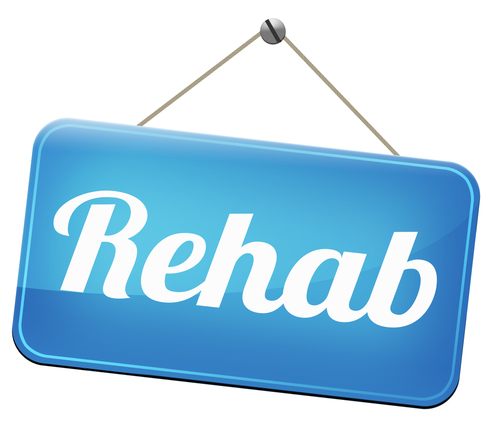Roxicodone Addiction Detox Center Harrodsburg IN
Home
Roxicodone Addiction Detox Center Harrodsburg IN Information
Roxicodone Addiction Detox Center Harrodsburg IN
Starting off sobriety by leaving a program early rarely works, as you have failed as soon as you leave early from the program. Our nationwide, 24-hour drug abuse helpline, 866. He says that drugs make the user powerless, which can be seen in how both drugs and alcohol make changes in the chemistry of a user’s brain. C4 Community Counseling Centers, Chicago Call: (800) 506-5834 C4 is a network of community counseling centers that provides aid and therapy for members of the community. Hotlines generally focus on beating the many problems that you may encounter on your journey to sobriety, including intervention suggestions, help finding qualified counselors, or even helping addicts that call when they are under the influence.
Medical, psychiatric, and social services should also be available in any certified drug rehab program. Family pressure or marriage problems arise when we start using drugs or alcohol and this could be s sign that things are escalating. Along with guiding you in your journey with Christ, we prepare you or your loved one for the challenges of every day life with: Christian Life-Skills Classes Prayer and Meditation Guidance Bible Studies Private Reflection Time Topic Discussions 2 Corinthians 4:16 “These troubles, no matter how severe they are, are nothing compared to the eternal glory coming.” Christian Rehabs Committed to Your Success We are committed to your success; at Treatment Center Finder, our number one goal is to connect you with the right Christian rehab for you or your loved one.
Even more Information Around Flunitrazepam Detox Centers

Even more Information About Flunitrazepam Detox Centers Harrodsburg IN
These San Antonio drug rehab centers offer a safe, friendly, and supportive environment conducive to fighting an addiction. Your browser may also contain add-ons that send automated requests to our search engine. We don’t leave drugs behind, especially if we’re going into treatment. Find the Inpatient Rehab Center your child needs today.
More Resources For Flunitrazepam Detox Centers
Undo Undo DRUG ADDICTION HELP Retweeted CCHR Intâ€Verified account @CCHRInt Feb 27 More Esquire Magazine: The Drugging of the American Boy —most of those boys are being drugged for no good reason—simply for being boys. 800-222-1222 Available 24 Hours a Day National Suicide Prevention Lifeline Whether you’ve used helplines for drug abuse or not, you might find that you need a different kind of help for a substance use or mental health disorder, such as suicide prevention. 800-273-TALK (8255) Available 24 Hours a Day Eating Disorders The National Association of Anorexia Nervosa and Associated Disorders (ANAD) 1-847-831-3438 (not a toll-free number) Available During Business Hours The National Mental Health Association 800-969-6642 Available During Business Hours Drug Abuse and Drug Addiction Hotlines The National Institute on Drug Abuse (NIDA) (national drug abuse hotline/national substance abuse hotline) 800-662-HELP (4357) 800-487-4889 – for hearing impaired callers (TDD) Available 24 Hours a Day The Partnership for a Drug Free America (Information for parents – This is not for crisis situations) This drug help hotline is intended for parents or anyone else seeking general information about drug abuse. Adi Jaffe is a nationally recognized expert on mental health, addiction and stigma.When a person is ready to enter treatment for drug abuse or addiction, it can feel overwhelming to figure out where to go for help. This usually means choosing a treatment program that can be either inpatient or outpatient. Outdoor experiences include activities such as hiking, climbing, rafting, and fishing.
Here are Some Even more Resources on Lorcet Rehab Center Harrodsburg IN
Outcome expectancies refer to an individual's expectations about the psychoactive effects of an addictive substance. Please click on the links to find out more about their meetings and to locate one near to you. To this end, a 1957 study[30] compared the relative effectiveness of three different psychotherapies in treating alcoholics who had been committed to a state hospital for sixty days: a therapy based on two-factor learning theory, client-centered therapy, and psychoanalytic therapy. Drug rehabs should also offer a combination of medical, pyschiatric, and social services. While your genes, mental health, family and social environment all play a role, risk factors that increase your vulnerability include: Family history of addiction Abuse, neglect, or other traumatic experiences Mental disorders such as depression and anxiety Early use of drugs Method of administration—smoking or injecting a drug may increase its addictive potential Drug addiction and the brain While each drug produces different physical effects, all abused substances share one thing in common: repeated use can alter the way the brain functions. Twitter will use this info to make your timeline better.
Click Here for More Information
Previous Next
You may also like:
Desoxyn Addiction Rehab Facility Burt Lake MI
Ambien Addiction Treatment Facilities West Hills CA
Biocodone Addiction Treatment Chireno TX
Flunitrazepam Addiction Centers Ina IL
Amphetamine Rehab Center Near Me Biggers AR
Ryzolt Detox Treatment Clinics Kendall Park NJ
Valium Detox Treatment Centers Otis LA
Tylox Detox Program Mooreton ND
Hash Addiction Rehab Center Barneveld NY
Xodol Rehab Clinics Oxford MD
Tussionex Addiction Rehab Lowell MA
Drug Rehab Blog Enochs TX
Vivitrol Addiction Rehab Facility Edmeston NY
Palladone Addiction Detox Clinic Clinton MO
Carisoprodol Rehab Treatment Facility Sedalia MO
Crystal Meth Abuse Facilities Girard GA
Addiction Recovery For Professionals Little Chute WI
Crack Cocaine Addiction Rehab Centers Plainfield OH
Methadone Rehab Near Me Van Meter IA
Detox From Medication Bonnyman KY